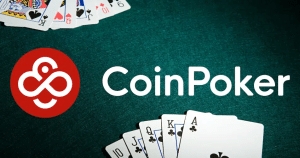In October, Macau reached a record high in gross gaming revenue (GGR), totaling MOP 20.8 billion ($2.6 billion), the highest monthly revenue since the region lifted COVID-19 restrictions last year. According to Macau’s Gaming Inspection and Coordination Bureau (DICJ), this figure surpassed the previous peak of MOP 20.2 billion ($2.52 billion) set in May. This recent performance underscores Macau’s swift recovery, establishing the region as a leading player in global gambling.
October’s GGR showed an impressive 20.5% rise from September’s figure of MOP 17.3 billion ($2.16 billion) and a 6.6% increase compared to the same month in 2023, when GGR was MOP 19.5 billion ($2.44 billion). Early October saw a particularly strong boost due to the National Day holiday, with high holiday-driven traffic generating a daily GGR average of MOP 1.08 billion ($134.8 million) across the first six days. These results underscore the sustained tourist influx and visitor engagement that helped drive Macau’s impressive monthly totals.
For the first ten months of 2024, Macau’s accumulated GGR reached MOP 190.1 billion ($23.7 billion), marking a 28.1% increase compared to the same period last year. Analysts are optimistic that the year’s final revenue will exceed Macau’s government forecast of MOP 216 billion ($26.8 billion), with some projections reaching as high as MOP 239.9 billion ($29.8 billion). Given these strong figures, analysts foresee that Macau may not only retain but strengthen its competitive edge over Las Vegas, especially as major Vegas events like the Super Bowl and the Las Vegas Grand Prix have concluded, providing less of a tourist draw compared to Macau’s steady stream of gaming visitors.
This consistent revenue growth has also sparked optimism among investors, benefiting major gaming companies like Wynn Resorts, MGM Resorts International, and Las Vegas Sands—all headquartered in Las Vegas but operating within Macau. These companies have retained positive investor ratings, reflecting confidence in Macau’s ongoing gaming sector rebound. Interestingly, Macau’s post-pandemic visitor demographic has shifted noticeably: the number of group travelers has decreased, replaced by a younger, more independent visitor profile. This demographic is increasingly drawn to personalized experiences beyond the typical attractions, including exploring local culture, authentic culinary scenes, and hidden gems. This shift has contributed to the diversification of Macau’s entertainment and hospitality sectors, as businesses adapt to meet the interests of these individual travelers.
As Macau’s gaming industry surges forward, local and international stakeholders acknowledge the importance of diversifying revenue streams beyond gaming. While gaming remains central to Macau’s economy, this new wave of younger, culturally curious visitors presents opportunities for the city to develop its non-gaming attractions. Such a balance not only supports the local economy but also provides more robust, sustainable growth as consumer preferences evolve. With these trends, Macau’s future looks promising, showing potential for continued recovery and a broadened tourism appeal that extends beyond its iconic gaming industry.
About Macau
Macau, officially the Macao Special Administrative Region of the People’s Republic of China, is a unique blend of Chinese and Portuguese cultures, reflecting its complex history. Portuguese traders first arrived in the early 16th century, establishing Macau as a significant trading hub between Europe and Asia. This colonial period lasted until 1999, when sovereignty was transferred back to China under the “one country, two systems” framework, allowing Macau to maintain a high degree of autonomy in its economic and administrative affairs.
Today, Macau is renowned as the world’s largest gambling hub, with the gaming industry serving as the cornerstone of its economy. In 2023, the International Monetary Fund projected Macau’s economy to grow by 13.9%, largely driven by the gaming sector’s recovery post-pandemic.
However, this heavy reliance on gambling has prompted discussions about economic diversification to ensure sustainable growth.
Efforts to diversify Macau’s economy have focused on developing non-gaming industries such as tourism, finance, and traditional Chinese medicine. The government has been actively promoting these sectors to reduce economic dependence on gambling revenues. For instance, initiatives to position Macau as a regional center for conventions and exhibitions are underway, aiming to attract a broader range of visitors and investments.
Culturally, Macau is a melting pot where East meets West, evident in its architecture, cuisine, and festivals. The Historic Centre of Macau, a UNESCO World Heritage site, showcases well-preserved colonial-era buildings alongside traditional Chinese structures. The city’s cultural landscape is further enriched by its status as a hub for relations with Portuguese-speaking countries, fostering a unique Lusophone community within Asia.
Macau Broadens Its Appeal with a Culinary Focus
To diversify its economy, Macau is tapping into its rich culinary heritage as a means to attract a broader range of visitors beyond its usual casino crowd. Named a UNESCO “City of Gastronomy” in 2017, Macau is leveraging this designation to promote its vibrant food culture, spanning from local street food to fine dining experiences. According to the South China Morning Post, this initiative includes hosting public events that highlight Macau’s culinary offerings across various settings, giving tourists a taste of the city’s authentic food scene.
12 chefs to represent Kuching at Cities of Gastronomy Fest 2024 in Macau https://t.co/w85r0FBUX2
— The Borneo Post (@theborneopost) June 11, 2024
Maria Helena de Senna Fernandes, director of the Macau Government Tourism Office (MGTO), emphasized that Macau’s unique culinary experiences could be a powerful draw for tourists. She noted that collaboration with community associations and NGOs could bring these events into smaller neighborhoods, allowing visitors to connect more deeply with Macau’s local culture. This initiative is part of a broader effort to diversify Macau’s tourism offerings and appeal to travelers interested in experiences beyond gambling.
This focus on culinary tourism represents Macau’s strategic shift not only to reduce dependence on gambling but also to decrease reliance on gambling-related revenue, which has long been the primary source of tax income in Asia’s gaming capital. Following the renewal of casino concessions in 2022, each of Macau’s six licensed casino operators is now required to invest at least MOP 100 billion ($12.47 billion) over the next decade in non-gaming ventures. These funds will support the development of spaces for conventions, concerts, large-scale sports events, and community and health tourism, adding to Macau’s appeal as a multi-faceted destination.
Poker in Macau
Macau has re-emerged as a premier destination for high-stakes poker tournaments, attracting players from around the globe.
One of the key poker venues is the City of Dreams, which hosts the popular Triton Poker Super High Roller Series. Known for its ultra-high buy-ins and intense competition, this series has attracted prominent players like Tom Dwan and Phil Ivey. The 2018 Triton Super High Roller series, held in Macau, featured a jaw-dropping buy-in of HK$1 million (about US$127,000) and awarded millions in prize money, cementing the city’s reputation as a high-stakes poker capital. This event showcased Macau’s appeal to elite players and its ability to attract poker enthusiasts from across the globe.
Another major poker hotspot in Macau is the PokerStars Live room at the City of Dreams, which has regularly hosted the Asia Pacific Poker Tour (APPT). The APPT series has been a favorite for both local and international players, offering buy-ins accessible to a broader audience while maintaining a competitive environment. For instance, the APPT Macau Main Event in 2017 attracted over 500 players with a buy-in of HK$25,000 (about US$3,200), offering an exciting prize pool and elevating the visibility of poker in Asia. Events like these not only highlight Macau’s dedication to poker but also demonstrate the city’s ability to blend traditional Asian hospitality with the thrilling appeal of high-stakes gaming.
In March 2024, Sands China hosted the Macao Masters at The Venetian Macao, marking the city’s first major poker event in six years. This four-day tournament featured a minimum prize pool of HK$288,888 (approximately US$37,000) and an entry fee of HK$3,000 (US$384), drawing significant attention from the poker community.

CoinPoker: A Blockchain-Powered Platform Tailored for Crypto Poker Enthusiasts
On the subject of poker, one platform is worth mentioning. CoinPoker offers a fresh twist on online poker by combining the power of blockchain with the excitement of cryptocurrency-based betting. Launched in 2017, CoinPoker uses blockchain technology to create a secure, decentralized environment for players who value privacy and innovation in online gaming. While CoinPoker primarily focuses on poker and a limited range of sports betting, it has faced challenges in expanding its appeal to the broader online gambling market. Here’s a closer look at what makes CoinPoker unique and why it resonates with crypto-savvy poker fans.
A Cryptocurrency-Centric Platform with Blockchain Foundations
Initially designed as a platform for casual, non-cash poker games, CoinPoker quickly evolved, and the platform introduced real betting through cryptocurrency, allowing players to make deposits using USDT in addition to popular tokens like Bitcoin, Ethereum, and its in-house token, CHP. This shift brought an entirely new way to experience poker. The platform uses Ethereum’s blockchain for secure transactions, and games are driven by a blockchain-based Random Number Generator (RNG) to ensure fairness and prevent manipulation. CoinPoker prioritizes user privacy, allowing players to participate anonymously from registration to transactions, appealing to those who value discretion.
More recently, to accommodate a range variety of users, CoinPoker introduced the ability to make fiat deposits.
Transparent Financial Integrity Through Proof of Reserves
Operating under a Curaçao eGaming license, CoinPoker upholds strict standards of transparency. The platform utilizes Proof of Reserves (PoR) to assure users that their funds are fully backed and safeguarded. With corporate and player funds kept separate, CoinPoker maintains approximately $16 million in player deposits, providing 105% fund coverage with total reserves estimated at $16.75 million. This commitment to financial transparency and security gives players confidence in the platform’s integrity.
Fair Play, Responsible Gaming, and Expansive Accessibility
CoinPoker’s blockchain-based RNG ensures fair play across all games, coupled with advanced anti-fraud measures. In addition to poker, the platform offers competitive sports betting and a dedicated mobile app for Android and iOS, giving users convenient, on-the-go access. CoinPoker also emphasizes responsible gaming by offering tools to help players manage their activity and a self-exclusion feature for those struggling with gambling-related issues. A dedicated responsible gaming officer ensures that the platform adheres to responsible gaming protocols.
Privacy-Focused Crypto Transactions
A key feature of CoinPoker is its privacy-first approach to transactions. Players can seamlessly deposit and withdraw using their preferred cryptocurrency wallets, allowing for private, secure, and efficient gaming. This level of discretion is particularly appealing to users who prioritize anonymity in online transactions.
Community Engagement Through Crypto Giveaways and High-Profile Ambassadors
CoinPoker regularly engages its community through giveaways and partnerships with renowned poker ambassadors. Recently, ambassador Bobby James drew attention with a fifth-place finish at the 2024 EPT Cyprus Main Event, winning $271,400. To celebrate, CoinPoker held a giveaway event across social media platforms, featuring James and inviting fans to participate. Patrick Leonard, another prominent ambassador, also performed notably at the event, taking 28th place with $26,600 in winnings. These partnerships and giveaways have become key to CoinPoker’s strategy, building excitement and community engagement.
CoinPoker’s own @BobbyJamesPoker is CRUSHING IT at EPT Cyprus! Correctly guess where he’ll finish on tomorrow’s final table and you could win $500! Comment your prediction with your CoinPoker username ⬇️ Entries closed when Day 6 kicks off #EPTCyprus #poker pic.twitter.com/o4ONirLKoS
— CoinPoker (@CoinPoker_OFF) October 19, 2024
An Appealing Platform for Crypto Poker Fans
For poker players who seek a secure, anonymous experience backed by blockchain, CoinPoker stands out. Although its selection of games is smaller than some competitors, its commitment to security, fairness, and responsible gaming practices makes it a compelling option. For crypto enthusiasts who enjoy poker, CoinPoker offers a distinctive, innovative space to explore the intersection of digital currency and gaming. You can explore the CoinPoker platform today to see all it has to offer.
Related News
Lucky Block Casino - Decentralized Gambling Platform

- Bet With Crypto - BTC, ETH, USDT, LBLOCK and More
- Live Dealers - luckyblock.com
- Rated Best New Crypto Casino - No KYC
- Thousands of Slots, Blackjack, Roulette Games



